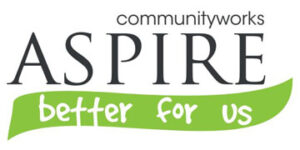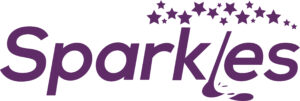Case study: How accredited organisations are building success through diversity
A diverse, equal and inclusive culture is imperative for a business to continue to thrive because it puts its people at the heart of its operation. When people feel valued and included, they are more likely to flourish at work. More diverse teams lead to better business outcomes.
We spoke to some of our accredited organisations to find out how committing to our EDI component has helped their business and employees.
Aspire Community Works is a campaigning and community business that provides estates management and open spaces services to local communities.
Aspire Community Works is dedicated to offering sustainable and quality opportunities to people facing challenges when looking for work. Could you tell us about the strategies and initiatives you have in place to ensure that Aspire Community Works is inclusive, and people feel comfortable sharing the information required to meet their needs?
“Promoting equality, diversity, and inclusivity at Aspire goes beyond legal compliance—it’s about prioritising people. Our employees are our top priority, and they understand that their success drives our business success. We work collaboratively to align their professional lives with their personal aspirations. While we have established EDI policies, the true creation of a welcoming and empowering workplace culture comes through their effective practice. This enables every individual to feel safe, belong, and achieve their full potential. Building trust is a two-way process, and we focus on earning this trust by valuing each person’s contribution.”
“Respect, listening, and learning from each other’s lived experiences are foundational to our approach. We acknowledge that everyone makes mistakes; rather than seeing these as failures, we view them as opportunities for learning and improvement. Our open door policy ensures that everyone can voice concerns and access support from our Board if needed. We promote a no-blame, learning culture where our diverse team, each facing their own disadvantages in the labour market, can contribute to and grow within an organisation we are all proud of.”
 Katharine Sutton, Director
Katharine Sutton, Director
As an organisation, how do you measure the effectiveness of the EDI initiatives you've implemented within your workforce? Are there specific metrics or key performance indicators that the organisation tracks to ensure that these initiatives are achieving their intended outcomes?
“At our organisation, our mission is to provide those disadvantaged in the labour market with high-quality employment and real living wages. EDI is crucial to our success; the more individuals facing labour market disadvantages we employ, the more successful we become. A significant portion of our business involves public procurement, where services are commissioned for the community. This process is regulated by law, which allows public services to reserve contract tendering for organisations where at least 30% of the workforce are disadvantaged or disabled. This is our operational benchmark.”
“Equality and diversity are not just internal KPIs but are also critical for our clients. Currently, 100% of our frontline employees are those disadvantaged by the labour market. When new opportunities arise, we proactively seek individuals who experience such disadvantages, selecting candidates based not just on ‘merit’ but also on their interest, commitment to our ethos, and practical work. The strength of our EDI practices is vital to the success of our trading operations. Failure in this area could lead to an inability to provide quality services, resulting in clients choosing more traditional organisations within our industries. Thus, getting EDI right is essential for our business success.”
 Katharine Sutton, Director
Katharine Sutton, Director
Bradburys Global Risk Group is a security, intelligence and risk management company which specialises in providing realistic and pressure tested solutions to mitigate risk across challenging environments for individuals and organisations.
Bradburys Global Risk Group is committed to being an inclusive employer, what have you implemented to ensure your workplace is diverse and everyone feels valued?
“At Bradburys Global Risk Group, we recognise the power of a diverse workforce in the security and risk management sector. By drawing on a variety of professional and personal backgrounds, beliefs and cultural perspectives, we enrich our team and enhance our ability to drive positive outcomes for clients and stakeholders across global time zones. To transcend mere box-ticking, we have implemented several ongoing initiatives to foster inclusivity. These include comprehensive diversity training programmes that promote awareness and appreciation of diversity, covering topics such as unconscious bias, cultural sensitivity, and inclusive language.”
“Our recruitment practices are designed to attract diverse talent through methods such as blind recruitment, diverse interview panels and guaranteed interviews for qualified applicants with disabilities. Additionally, our mentorship programme pairs new hires with experienced mentors to provide personalised guidance and support, ensuring all employees feel encouraged in their professional growth. We are committed to challenging industry norms, particularly in advocating for greater female representation in a traditionally male-dominated field. Our efforts include supporting initiatives like the United Nations Partnership for Global LGBTI Equality and actively participating in the UN Global Compact, where we report annually on Human Rights to set and achieve progressive targets. Through these actions, we aim to create a more balanced, forward-thinking workplace and industry.”
 Roger Marshall, CEO
Roger Marshall, CEO
What has worked particularly well, and have you had to overcome any hurdles?
“Our diversity training at Bradburys Global Risk Group has significantly raised awareness and understanding amongst all staff levels. By addressing unconscious bias, we’ve fostered a more inclusive and respectful culture. Additionally, our diverse recruitment practices have successfully attracted top talent from various backgrounds, notably including former service personnel and individuals dealing with physical injuries or mental health challenges. However, overcoming obstacles such as resistance to change and ingrained biases within the security industry has required persistence. Maintaining our focus on inclusivity goals required sustained effort, continuous education, and refresher training on inclusive behaviours.”
“To tackle these challenges, we’ve employed strategies such as regular communication and implementing accountability measures, which have been crucial in overcoming hurdles and promoting a culture where diversity and inclusion are embedded in our core principles. While there are ongoing efforts required across the business, the progress thus far has been encouraging, and I am especially proud of our team’s dedication to creating a workplace where everyone feels valued, respected, and empowered to succeed.”
 Roger Marshall, CEO
Roger Marshall, CEO
Sparkles Cleaning is a professional cleaning company which also provides secure employment to individuals in difficult circumstances.
Sparkles Cleaning is dedicated to ensuring you are a diverse and inclusive employer, working with many organisations to give training and employment opportunities to individuals who would otherwise find it difficult to work. Can you share some of your challenges and successes?
“We have prioritised our commitment to Equality, Diversity, and Inclusion (EDI) in every aspect of our operations, which has significantly impacted our organisational outcomes. Through our mentorship program and the establishment of a Works Council, we’ve provided our team members with avenues to actively participate in decision-making and highlight areas for development. These initiatives have not only boosted morale but also significantly increased our annual turnover from £50,000 to £840,000 over five years. Our dedication to inclusivity is reflected in our financial practices as well; we offer bi-annual profit shares to all team members and proudly pay the Real Living Wage, earning us the Living Wage Champions Award – an accolade suggested by our own staff.”
“Our focus on nurturing an inclusive environment has fundamentally shifted the traditional management focus away from routine oversight towards meaningful engagement. This shift has reduced the time spent on managing sickness and recruitment freeing up resources to support broader EDI initiatives. These efforts include supporting individuals with significant barriers to employment, such as helping a young person dealing with homelessness and anxiety to integrate and thrive in our workplace.”
 Ceri Jennings, Managing Director
Ceri Jennings, Managing Director
You work with external organisations to help you adapt practices to better enable our employees with physical or mental challenges, what adjustments have you put in place?
“We have worked with Elite Supported Employment to learn different approaches to support the learning and development of team members who have particular needs, including a member of the team who is autistic. In addition, we worked with Maximus to help us adjust our workplace to support a new team member with Spina bifida.”
“We also work with People Plus, and local Hubs in Cardiff. We are registered as a Work Trial Employer, and we have signed up to the Cardiff Commitment Drive. We have also recently moved from Disability Committed to being awarded Disability Confident status and are working towards Disability Leader”
 Ceri Jennings, Managing Director
Ceri Jennings, Managing Director
Feeling inspired?
We are incredibly proud of the work our accredited organisations do within the EDI component, having truly embedded and championed the GBC framework. It’s clear that EDI is a fundamental aspect of a modern business strategy that directly influences success and sustainability. By prioritising people, respecting diverse experiences, and committing to continuous improvement and cultural sensitivity, organisations can achieve more than just compliance – they can build thriving communities and competitive advantages.
If you are feeling inspired by these organisations, visit our other component pages to see how organisations are embedding the other nine components and see how you can make similar actions!



